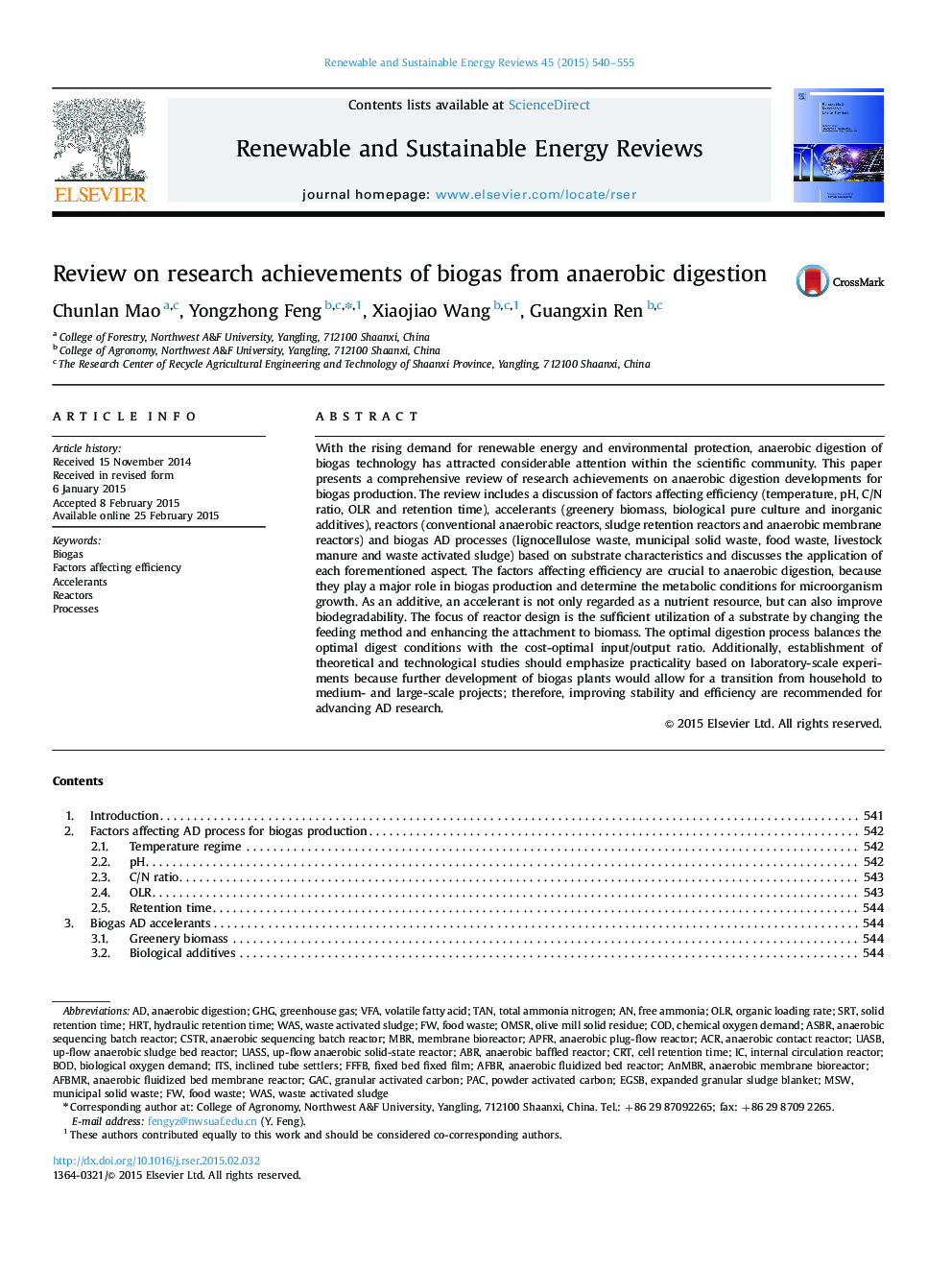| Article ID | Journal | Published Year | Pages | File Type |
|---|---|---|---|---|
| 1750066 | Renewable and Sustainable Energy Reviews | 2015 | 16 Pages |
Abstract
With the rising demand for renewable energy and environmental protection, anaerobic digestion of biogas technology has attracted considerable attention within the scientific community. This paper presents a comprehensive review of research achievements on anaerobic digestion developments for biogas production. The review includes a discussion of factors affecting efficiency (temperature, pH, C/N ratio, OLR and retention time), accelerants (greenery biomass, biological pure culture and inorganic additives), reactors (conventional anaerobic reactors, sludge retention reactors and anaerobic membrane reactors) and biogas AD processes (lignocellulose waste, municipal solid waste, food waste, livestock manure and waste activated sludge) based on substrate characteristics and discusses the application of each forementioned aspect. The factors affecting efficiency are crucial to anaerobic digestion, because they play a major role in biogas production and determine the metabolic conditions for microorganism growth. As an additive, an accelerant is not only regarded as a nutrient resource, but can also improve biodegradability. The focus of reactor design is the sufficient utilization of a substrate by changing the feeding method and enhancing the attachment to biomass. The optimal digestion process balances the optimal digest conditions with the cost-optimal input/output ratio. Additionally, establishment of theoretical and technological studies should emphasize practicality based on laboratory-scale experiments because further development of biogas plants would allow for a transition from household to medium- and large-scale projects; therefore, improving stability and efficiency are recommended for advancing AD research.
Keywords
Related Topics
Physical Sciences and Engineering
Energy
Renewable Energy, Sustainability and the Environment
Authors
Chunlan Mao, Yongzhong Feng, Xiaojiao Wang, Guangxin Ren,
